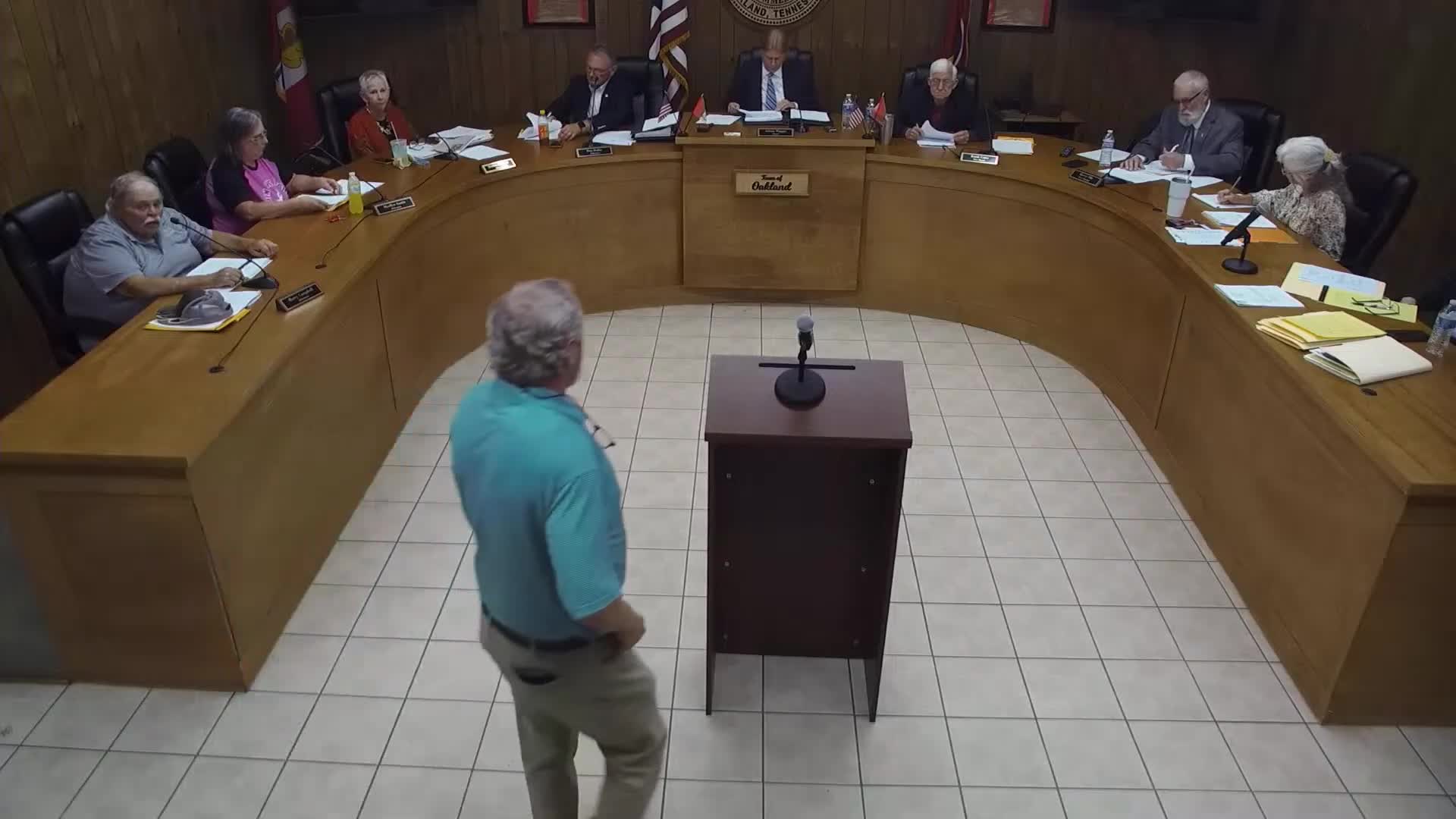Oakland leaders, residents clash over high utility bills as town details $25 million wastewater project
Get AI-powered insights, summaries, and transcripts
Subscribe
Summary
Residents pressed the Town of Oakland for answers about recent $100–$400 utility bills while officials outlined a $25 million wastewater plant expansion, explained revenue sources and said bookkeeping and communication failures helped fuel confusion.
Residents at the Town of Oakland Board of Aldermen meeting on Oct. 16 pressed elected officials for explanations after a wave of unusually large utility bills, while town leaders described a multi‑million‑dollar wastewater upgrade, the accounting that funds it and steps the town will take to improve public communication.
The dispute surfaced during the citizen comment period, when multiple residents said they had received utility bills of $100 to $400 and asked why rates had risen so sharply. “We deserve explanations,” resident Amy said. Mister Sutton and other citizens echoed that demand, stressing the financial strain on retirees and long‑time residents.
Town Manager Mr. Ellis and public works officials told the board that years of deferred maintenance and state enforcement actions left Oakland with little choice but to expand its wastewater treatment capacity. “We had to borrow $25,000,000 to upgrade our wastewater treatment plant,” Mr. Ellis said, adding that the town applied roughly $2,000,000 in American Rescue Plan Act (ARPA) funds to the project. He said the work will increase the plant from about 1,000,000 gallons per day to roughly 3,000,000 gallons per day and that the contractor’s 24‑month contract is scheduled to finish in March 2026.
Public works and town staff said the town received two bids for the construction contract. Officials also said the Tennessee Department of Environment issued a director’s order and a consent order related to permit exceedances, prompting the corrective work; Mr. Ellis said a separate director’s order earlier this year included a potential $67,000 fine and a 30‑day corrective action plan.
Officials described several factors that contributed to higher bills. The town engaged the Municipal Technical Advisory Service (MTAS) to do a rate study and has raised rates after previously deferring depreciation and not incrementally increasing rates over many years, Mr. Ellis said. Board members also said the town removed a summer‑usage cap that had previously limited wastewater charges tied to high summer water consumption; that change, combined with rate increases, contributed to large summer bills for some customers.
Several residents asked why developer tap fees — a one‑time charge paid by builders when a lot connects to town utilities — did not cover the wastewater project. Board members and staff explained that tap fees are collected at the time of development, are typically intended to offset capital and capacity costs, and are distinct from recurring rate revenue used to operate the plant. The board noted that past ordinances raised the sanitary sewer tap fee from $2,500 to $3,100 and that the ordinance specified $600 of that increase should be kept in a restricted line item for wastewater improvements. An alderman said the town’s bookkeeping had not consistently shown that separation and that staff would correct the accounting and present a spreadsheet showing tap‑fee receipts by year.
Residents and speakers also raised concerns that earlier permitting and approvals allowed new home construction before the town had adequate wastewater capacity. In response, officials said some large subdivisions were authorized years ago and that, in the long run, additional customers would spread fixed costs across a larger customer base, though that growth also had strained the existing plant.
Town staff urged residents who received anomalous bills to contact the town for account reviews and leak investigations. Wastewater operator Blake Coker was identified to residents as a resource and was credited by the town manager for work on the grant that covered cybersecurity upgrades.
Why it matters: Oakland has undertaken a major capital project to address regulatory compliance and capacity needs. The project’s financing and recent rate changes are directly affecting residents’ monthly bills and have triggered questions about past financial planning, bookkeeping, and transparency.
The board did not adopt new relief programs at the meeting. Officials said they are pursuing rate reviews, will correct internal accounting for tap‑fee proceeds, and will continue discussions with residents about how revenues are applied. Residents’ group Better Oakland said it will attend future meetings to seek additional transparency and requested plant and park tours with the town manager.
Ending: The town’s wastewater expansion remains under construction with a projected completion date in March 2026; board members said they will continue work on rate studies, bookkeeping corrections and public outreach in the coming months.
